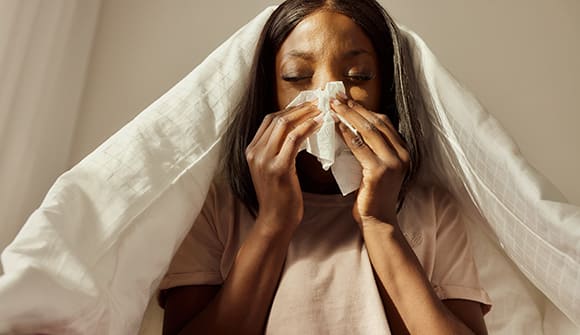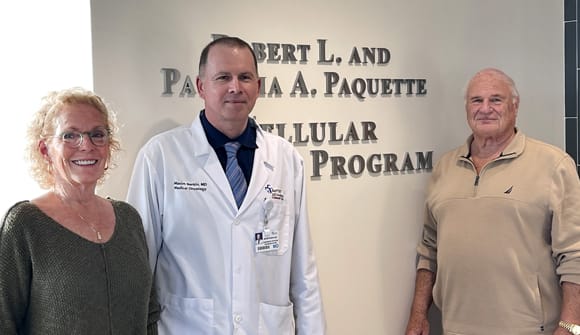E. coli, explained
Answers amid recent E. coli outbreaks.
Article Author: Juliette Allen
Article Date:

A go-to healthy snack for kids and adults alike is at the center of the latest E. coli outbreak. The Centers for Disease Control and Prevention (CDC) issued a warning about illnesses linked to bagged organic carrots just days after posting a similar notice about slivered onions served on hamburgers at a popular fast-food chain.
Shalika Katugaha, MD, system medical director of Infectious Diseases for Baptist Health, answered questions about the bacteria, the November 2024 E. coli outbreaks, and what you need to know to keep yourself and your family healthy.
What is E. coli?
Escherichia coli is a bacterium that lives in the intestines of healthy people and animals. Though most are harmless, a few strains can cause serious illness.
“You may be exposed to E. coli from contaminated food – especially ground beef – or water, unpasteurized dairy products and raw vegetables,” explained Dr. Katugaha.
What are the symptoms of E. coli poisoning?
According to the CDC, gastrointestinal symptoms usually start three to four days after swallowing E. coli and may include:
- Diarrhea that may be bloody
- Nausea and/or vomiting
- Stomach pain or cramping
- Fever
Though most people recover without treatment, children under 5 and adults over 65, along with people with weakened immune systems, are at highest risk for severe illness. Those who experience diarrhea caused by E. coli should drink plenty of fluids to avoid dehydration. Dr. Katugaha warned people to consult their primary care physician before using antidiarrheal medications, which could be harmful in some situations.
“You should contact your doctor if you have bloody diarrhea,” she said. “You should seek emergency care if you pass large amounts of blood through your rectum or experience lightheadedness, a rapid heart rate or overall weakness.”
Those with severe illness may be treated with antibiotics.
What are some E. coli prevention tips?
Unfortunately, while washing produce can reduce the amount of bacteria present, it doesn’t eliminate it entirely. Freezing will slow E. coli growth, but once the product is thawed, the bacteria can resume growing and multiply. Cooking beef and vegetables to an internal temperature of 160 degrees F will kill E. coli.
“It’s best not to risk it,” advised Dr. Katugaha. “If you have anything that’s been recalled, like the bagged carrots, you should throw it out.”
Additionally, she recommended following the CDC and U.S. Department of Agriculture’s steps for E. coli prevention and food safety:
- Clean hands and surfaces
- Separate foods to avoid cross-contamination
- Cook foods to safe temperatures
“Another potential source of exposure is person-to-person contact, which makes handwashing especially important,” Dr. Katugaha emphasized.
If you’re experiencing symptoms of E. coli poisoning, contact your primary care physician. If your symptoms are severe, go to the nearest Emergency Center.
Source: CDC E. coli outbreak information



